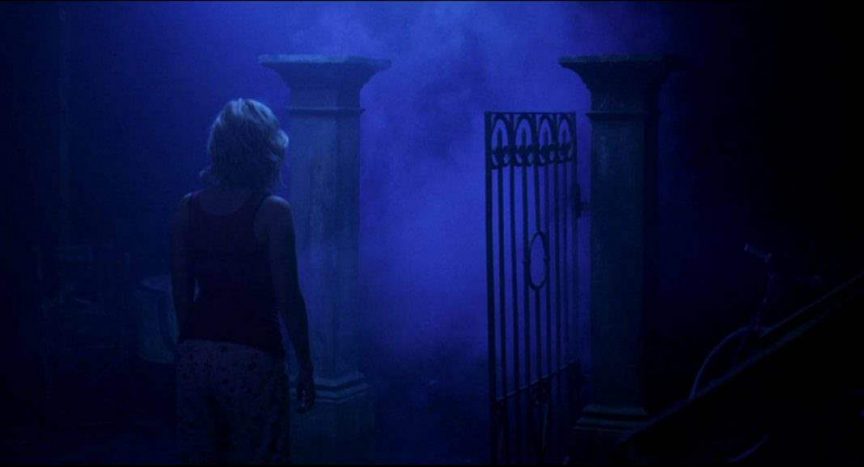Lucio Fulci left a lasting mark on fans and filmmakers alike. People are still talking about his work to this day. Movies like The Beyond and Zombie continue to see newly restored Blu-ray releases. Directors from Jackson Stewart to even Rob Zombie have taken heavy cues from Fulci in recent years. But this goes back much farther than that. Contemporaries, often with even lower budgets than Fulci got to work with, would take cues from his work all the time.
Did You Know? Wicked Horror TV Has Classic and Independent Horror Films Available to Stream for Free!
The end of the seventies into the early eighties was simply a genre renaissance. Everything felt unique and original but, at the same time, everyone borrowed from everybody. While this list definitely won’t cover everything that took clear influence from the films of Lucio Fulci, I think it will at least provide a good glimpse into different projects from different eras that borrowed or lifted elements from Fulci’s filmography in very different ways.
Dawn of the Mummy
Dawn of the Mummy is not a very good movie. At the very least, the transfer I’ve seen does it no favors. It’s slow, it shambles and moves at a snail’s pace, much like the mummy itself… at least until it goes absolutely bonkers in the third act and not only starts delivering on some gore, but shifting into what basically winds up feeling like Zombie but with mummies. As a fan of mummy flicks who’s never really been satisfied with the lack of carnage, this one at least delivers in that department.
 Burial Ground
Burial Ground
Another Italian cult classic of Fulci’s era, Burial Ground almost feels like a Fulci film in many respects. We’ve got very similar zombies wreaking very similar kinds of carnage, a vacant-eyed child character—and in this case a child that’s never been more clearly played by a grown man—who bears similarities to Bob in House by the Cemetery. This is not to take anything away from Burial Ground as its own movie, either, it’s just a very clear product of a time in Italian cinema that Fulci very much helped define.
 Beyond the Gates
Beyond the Gates
Jackson Stewart’s movie about a haunted VHS board game (yes, you read that right) really earns the first word of its title as it gets refreshingly weird and surreal as it goes, taking heavy cues from The Beyond. It’s very much its own story—and a much more straightforward one than Fulci would typically tell—but there are visual references to the maestro and the whole experience has a similar tone of overbearing dread that was readily apparent in much of Fulci’s best work.
 Hellbound: Hellraiser II
Hellbound: Hellraiser II
An organic follow-up to the stunningly original Hellraiser, Hellbound also takes things in very different directions. It’s more surreal, full of even stranger, more nightmarish imagery. It truly feels like The Beyond filtered through the lens of Clive Barker. The balance of familiar story, carrying on the imagery and pushing the narrative—and visuals—into new and stranger directions are precisely what make this one of the better horror sequels ever made.
Related Post: Hellbound: Hellraiser II – Crafting a Modern Fairy Tale

Castle Freak
Castle Freak doesn’t have any direct ties to any one piece in Fulci’s filmography. There’s no particular movie to look at and say, “Well, it’s clearly a reference to that.” But everything from the tone, to the uncomfortably isolated family—both in terms of the setting and their relationships to one another—and the sheer starkness of its very abundant gore give Castle Freak an almost honorary status in Fulci’s oeuvre. Still, this is very much as Stuart Gordon movie and as such it’s one of late the director’s absolute best.
Also See: Exclusive Interview – Stuart Gordon Discusses Re-Animator: The Musical
 The Lords of Salem
The Lords of Salem
After two divisive re-imaginings of Halloween, Rob Zombie made a movie that divided his own fans even more than the two previous features. Lords of Salem proved he could do something different, something that clearly still felt like a Rob Zombie vehicle but with an entirely new flavor. It wasn’t the Rob Zombie that fans were used to seeing and that turned some people away. But Lords of Salem not only shows restraint, it dives head-first into bizarre surrealism, borrowing heavily from Fulci in terms of style, tone and even structure.
 The Dead Hate the Living
The Dead Hate the Living
The Dead Hate the Living was never a film that was going to have a huge audience, and not just because it was produced by late-era Full Moon. It wasn’t for the casual horror audience, happy to hear and understand references to Michael Myers and Jason Voorhees. Dead Hate the Living doesn’t f**k around. It talks directly to the hardcore horror crowd. It’s about a die-hard fan making a no-budget movie with his friends—which makes it instantly relatable for most aspiring filmmakers watching—and it name drops not only Fulci and his films, but his actors and cinematographers as well. That it’s able to do this and not feel totally alienating is a testament to how underrated this little gem really is.






